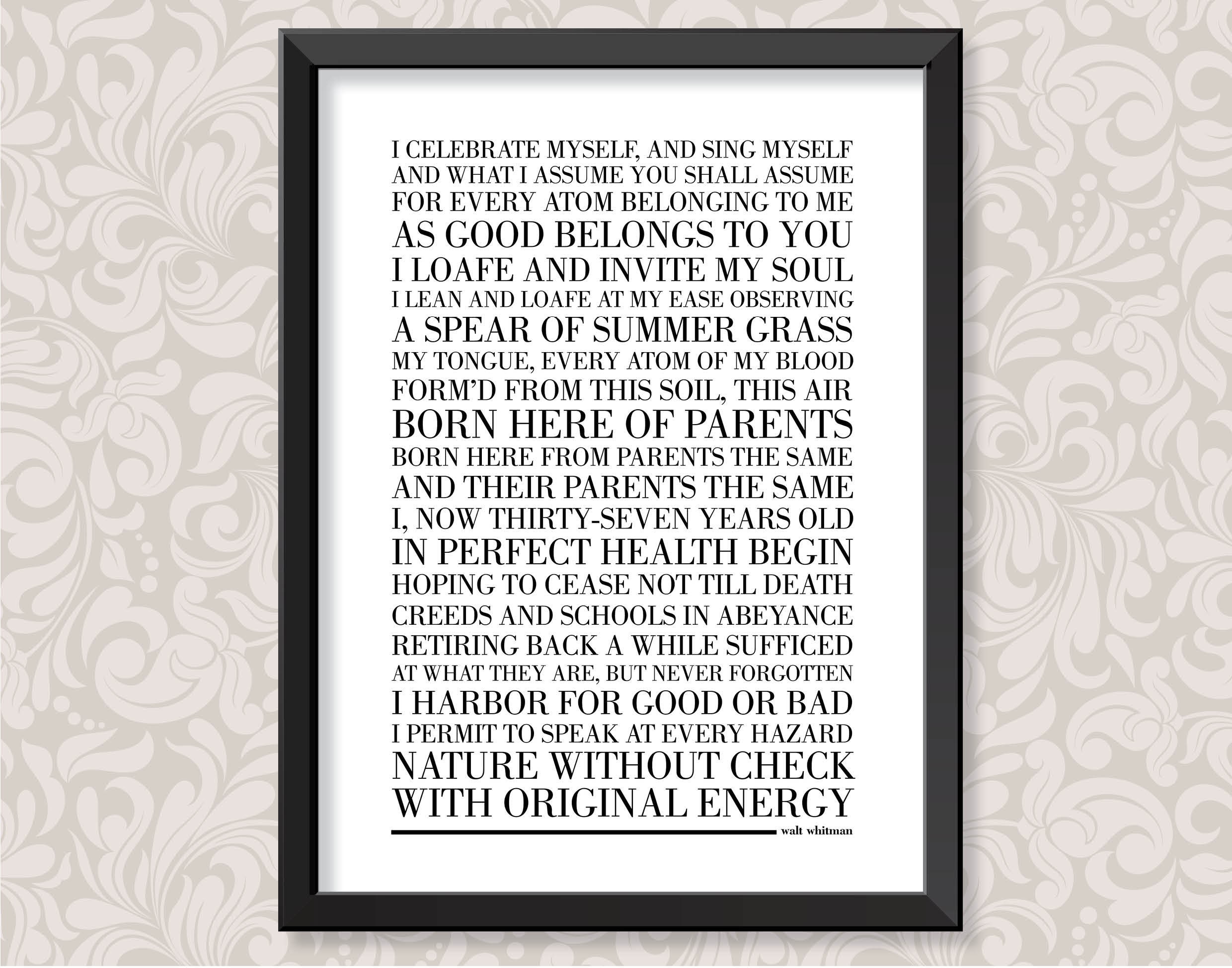

Of fog in the air and beetles rolling balls of dung. Of the trivial and flat and foolish and despised, Voices of cycles of preparation and accretion,Īnd of the threads that connect the stars-and of wombsĪnd of the rights of them the others are down upon,

A great poem of self-doubt of the later 1850s, “As I Ebb’d with the Ocean of Life,” shows us a speaker ferociously disappointed in the reception of his own vision, acutely aware of the strangeness of what he’s said. Perhaps this irreconcilability lies behind the formal tensions between “verse paragraphing” and the tight construct of the couplet the transparence of one sits beside the opacity of the other, and the contradiction cannot be resolved, but instead must simply be accommodated. (That this is still the case is richly demonstrated in the debacle of the last years of the Clinton administration, when the president famously gave a young White House intern a copy of Leaves of Grass as part of a process of seducing her, and the nation knew far more about the stain on her blue dress than most would have wished to know.) I do not think that the unsayable, in Whitman, partakes much of the first quality, though critics have argued that only a complex internal mechanism of repression could allow a poet to both proclaim a radical philosophy of sexual fellowship, especially same-sex coupling, as a basis for political change and expect that he would be absorbed by his country . . . This is indeed a shattering contradiction, but Whitman seems to have been acutely self-aware, and he surely knew that in America we cannot reconcile horniness and wisdom.


 0 kommentar(er)
0 kommentar(er)
